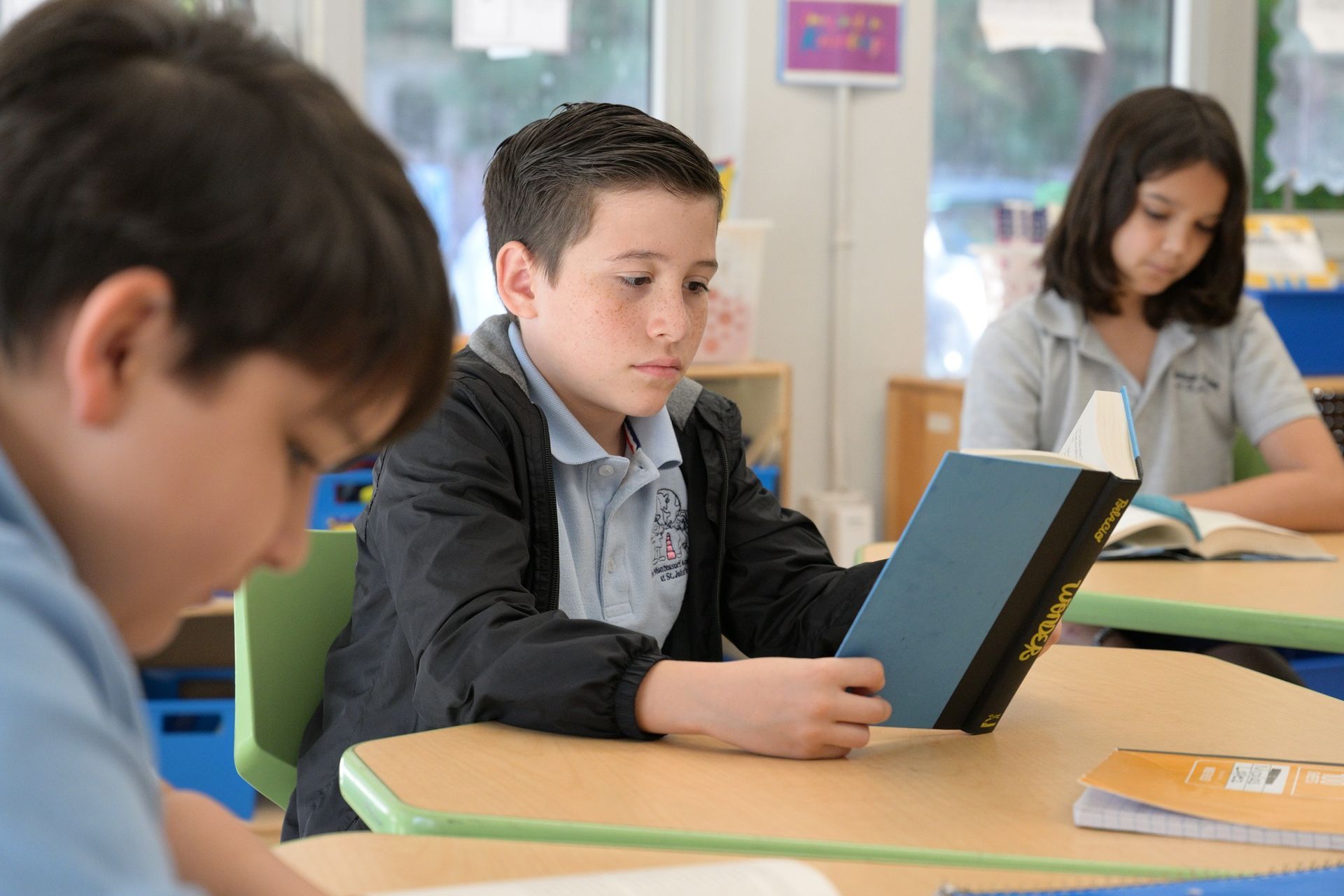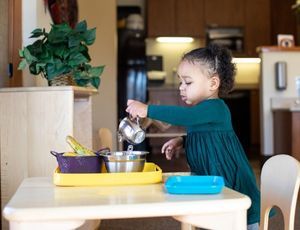Our mission is to prepare children for life.
We inspire a lifelong love of learning by providing a stimulating environment where children develop essential skills and a positive attitude toward learning.
Why do so many families choose Montessori Academy at St. John's?
At The Montessori Academy at St. John's, we celebrate your child's individuality, fostering a love for learning through curiosity, independence, compassion, collaboration, and critical thinking.
While we focus on the whole child, our academic achievements are exceptional. It’s not unusual to see our four-year-old’s reading, six-year-olds mastering long division, and nine-year-old’s classifying botanical specimens.
Our school is more than just a learning environment; it’s a community for children and their families. We view our relationship with you as a true partnership, working together to ensure your child’s success.
At The Montessori Academy at St. John's, we recognize that learning is not a one-size-fits-all journey. We meet each child where they are, allowing them to progress at their own pace.
“Our experience at MASJ has been truly wonderful. The supportive and nurturing environment has helped my child grow both academically and socially. The staff genuinely care about each student’s well-being, creating a strong sense of community that we value deeply. We’re so grateful to be part of a school that fosters both learning and kindness!”
Singh Family
“Montessori Academy at St Johns is a special place where you can live and breathe love, care and inclusion, everyday everywhere. The Montessori method accelerates learning and development making it fun and tailored to each individual student. Teachers will make your child’s wellbeing their first and absolute priority. They helped both my daughters in critical phases of their life such as adjusting to a new school and to a life major events such as the birth of a new sibling. All of this while continuing to learn, grow and develop into curious and kind human beings. When your kids are excited about going to school and they miss school during breaks or holidays that’s when you know they go to the right place."
Dezzani Family
Visit us!
We invite you to visit our school, meet the teachers, and observe the children in their classrooms. We encourage you to ask questions and learn about the opportunities available at all levels of our programs.








